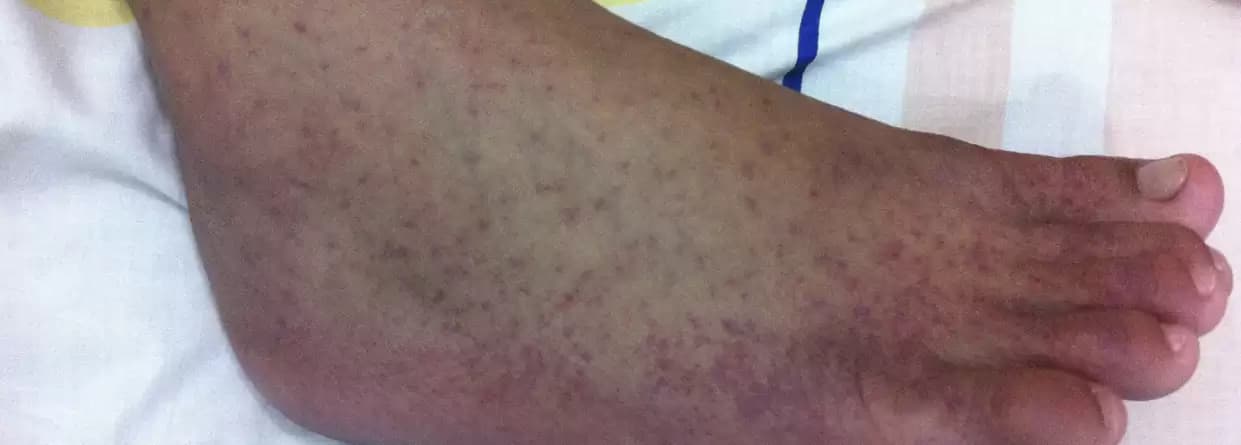
Chikungunya is a mosquito-borne, viral disease that is transmitted to humans through the bite of an infected mosquito.
Chikungunya is a mosquito-borne, viral disease that is transmitted to humans through the bite of an infected mosquito. The species of mosquitoes that are responsible for spreading the virus are known as Aedes aegypti and Aedes albopictus. These mosquitoes bite an infected person and in turn become the carriers of the chikungunya virus, which is then further spread to every uninfected person who receives the mosquito bite. These mosquitoes generally bite during the day, though they are found in well-lit areas even during the night time. This disease causes severe joint and muscle pain, fever, and severe headache but is usually not fatal except for some rare cases. The symptoms of chikungunya begin to show post three to seven days of the mosquito bite, and except for joint pain, the other symptoms usually fade away within a few days. Chikungunya is generally not contagious, though in rare cases, it can be transmitted via contact with infected blood.
Chikungunya is caused by the bite of Aedes aegypti or Aedes albopictus species of mosquitoes, which usually are active during the day. These mosquitoes tend to carry the virus which is transmitted to a human through their bite; when an uninfected mosquito bites the infected human, it becomes the carrier of the virus thereby spreading the disease. These mosquitoes typically bite outdoors; however, Aedes aegypti can bite indoors too.
The symptoms of Chikungunya usually set off after 3-7 from the bite of the infected mosquito. However, in some cases, the symptoms might even show after two days or might not appear until 12 days. Thus, it is always best to confirm via a blood test. That said, some of the common symptoms that can help identify the Chikungunya disease are:
In most cases, the symptoms last for a week and patients tend to feel better thereafter. However, in some cases, joint pain may persist for weeks or months. Chikungunya is not fatal but the symptoms can be severe. Some people who are at more risk of infection include newborn babies infected at birth, people of or more than the age of 65 years, as well as people with high blood pressure, diabetes and heart problems. The symptoms of chikungunya are very often confused with dengue or zika virus, though it is confirmed via a blood test before initiating treatment.
Chikungunya is rarely fatal; however, the symptoms can be severe and disabling. In most cases, the recovery period lasts for a week, but joint pain still lingers on for weeks or months in some cases. There is no set cure or medication for chikungunya, and treatment depends on case to case and is directed at relieving the symptoms. Some of the common over-the-counter medications to reduce pain and fever include:
That said, more importantly, the doctors will suggest getting plenty of rest and drinking a lot of fluids to prevent dehydration – to offset the symptoms of Chikungunya.
Moreover, it is important to remember that the virus stays in the human body at least for five to seven days and during this time, if an uninfected mosquito bites the infected human, it becomes the carrier of the virus too; hence, the patient must stay away from any mosquito bites until complete recovery.
As of today, there is no vaccine or medicine to prevent chikungunya. However, the most effective method to prevent the virus is to stay away from the source of it – the bite of the mosquito. Some of the steps that can prevent the bite of the infected mosquito are:
Though rare, some complications that might result from a chikungunya virus if not treated properly are:
Currently, there are no vaccines or medications specifically directed to kill or prevent the Chikungunya virus. That said, vaccines are under development in India and the United States of America.
Though not fatal, chikungunya can cause some severe symptoms that last for months or even longer, as well as certain health problems, in rare cases. Thus, it is vital to know about the virus, take steps to prevent it, and consult a doctor if any symptoms arise.
Written and Verified by:

Dr. Sushil Kalra is the Director of Internal Medicine Dept. at CK Birla Hospital, Jaipur, with over 34 years of medical experience. He specializes in critical care, managing ICU and CCU patients, and acute medical conditions.
Similar Internal Medicine Blogs
Book Your Appointment TODAY
© 2024 RBH Jaipur. All Rights Reserved.